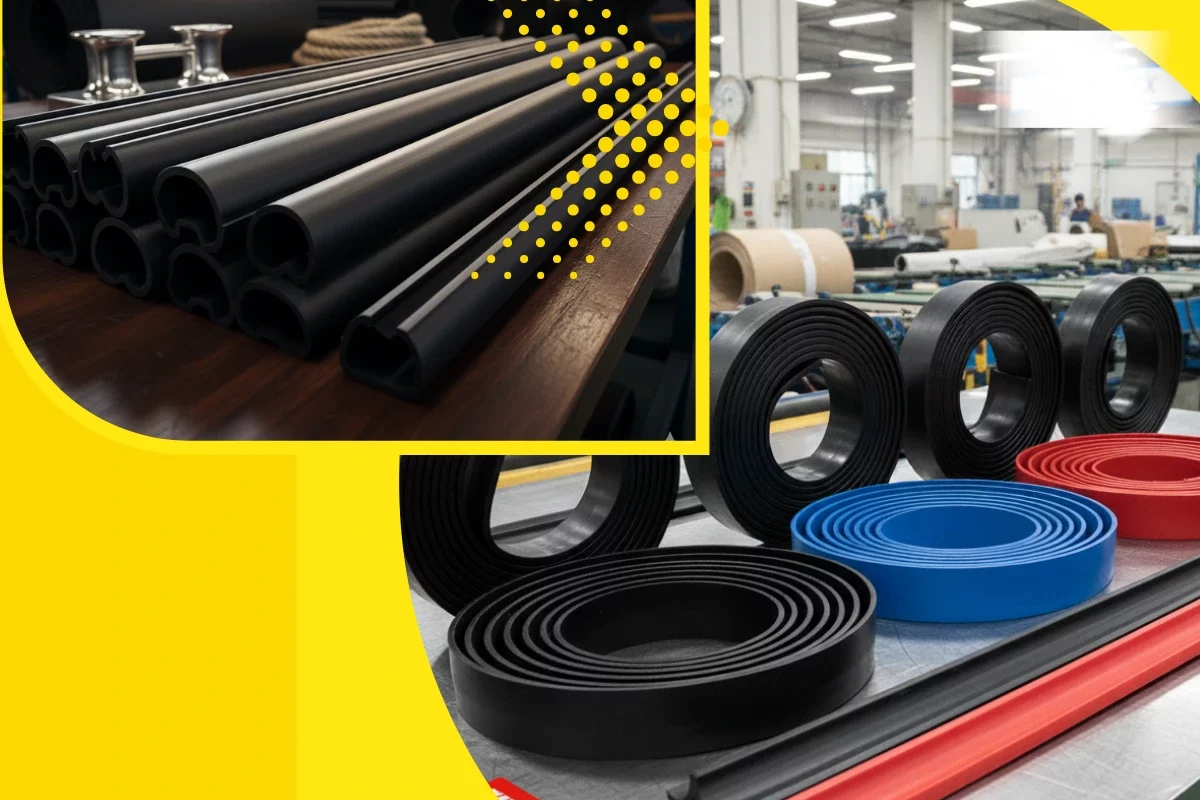From heavy-duty machinery to marine applications, rubber products are integral to countless New Zealand industries. Among these, rubber sheets and gunwale rubber are two of the most widely used materials — valued for their flexibility, durability, and resistance to environmental stress.
Whether you operate in marine, manufacturing, construction, or logistics, understanding these materials helps you make informed purchasing decisions that enhance performance and reduce downtime.
1. What Are Rubber Sheets?
Rubber sheets are flat, flexible layers of rubber used for insulation, sealing, cushioning, and surface protection. They come in various types, such as:
- Natural Rubber Sheets: Excellent elasticity and tensile strength.
- EPDM Rubber Sheets: Weather, UV, and ozone resistant — ideal for outdoor and marine use.
- Neoprene Rubber Sheets: Resistant to oil, chemicals, and temperature changes.
- Silicone Rubber Sheets: High-temperature performance with superior flexibility.
Applications:
- Gaskets and seals
- Vibration and noise reduction
- Machinery lining
- Flooring and safety mats
In New Zealand industries, rubber sheets are especially valued for withstanding moisture, salt, and temperature fluctuations — ensuring long-term reliability.
2. What Is Gunwale Rubber?
Gunwale rubber is a marine-grade protective edge strip fitted along the sides (gunwales) of boats. It acts as a buffer, absorbing impact and preventing damage when docking or during rough seas.
Why It Matters for NZ’s Marine Industry:
New Zealand’s coastal and harbor environments expose boats to UV rays, saltwater, and mechanical wear. High-quality gunwale rubber provides a flexible, weather-resistant barrier that protects both the boat and dock surfaces.
Common types include:
- D-section gunwale rubber for heavy-duty boats
- U-section gunwale rubber for lightweight craft
- Custom extrusions for specialized fittings
3. Key Factors to Consider When Buying
Before purchasing rubber sheets or gunwale rubber, keep the following factors in mind:
- Material Composition: Choose the right type based on exposure — EPDM for weather, Neoprene for oil, Natural Rubber for elasticity.
- Thickness & Density: The heavier the load or impact, the thicker the rubber required.
- Temperature Range: Ensure compatibility with operating temperatures.
- Durability & Maintenance: Opt for materials that resist cracking, hardening, or UV degradation.
- Supplier Reputation: Working with an experienced New Zealand supplier ensures product authenticity and expert technical support.
4. Why Local Supply Matters
Importing rubber materials may appear cost-effective, but local suppliers like Rubber Bits and Industrial Conveyors offer significant advantages:
- Fast delivery and stock availability
- On-site technical advice
- Custom cutting and extrusion options
- Quality compliance with NZ standards
Our team supplies a full range of rubber sheets, marine rubber, and gunwale rubbers engineered for local conditions — ensuring performance you can trust.
5. Maintenance Tips for Longevity
- Clean regularly to remove salt or chemical deposits.
- Avoid prolonged exposure to direct sunlight when possible.
- Inspect joints and edges for wear or hardening.
- Use compatible adhesives or fittings during installation.
Conclusion
Rubber sheets and gunwale rubber are small components with a big impact on safety, performance, and longevity across New Zealand industries. Investing in high-quality rubber materials not only enhances efficiency but also protects valuable assets from damage and downtime.
If you’re looking for trusted rubber suppliers in New Zealand, Rubber Bits and Industrial Conveyors offers over 45 years of expertise in delivering durable, cost-effective solutions.
📞 Contact our team today or visit our website to explore our complete range of rubber products.


